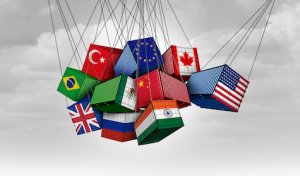Free trade has long been defended as an unquestioned good in economics, yet its welfare foundations are deeply flawed. The efficiency gains highlighted by comparative advantage rest on the Potential Pareto Principle, which assumes away distributional concerns and treats aggregate surplus as synonymous with social welfare. In practice, free trade produces both winners and losers, often with significant and lasting harms to labor. Classical and modern theorists—from Ricardo to Samuelson—have acknowledged these problems, but standard textbooks and policy rhetoric bury them beneath confident claims of net benefits. Revisiting the Stolper-Samuelson Theorem, critiques of consumer and social surplus, and later retractions by Hicks and Samuelson, we show that the intellectual case for free trade rests on indefensible ethical and empirical premises. A more rigorous and honest approach requires economists to restrict themselves to identifying effects on different groups, while leaving judgments about welfare and distribution to broader political debate.
Working Paper
Working Paper By
Download- Wp 239 Glick Lozada Free Trade (pdf, 615.76 KB)



